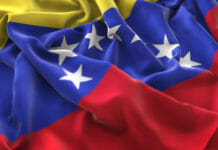51% of Latin citizens implemented bitcoin and crypto-assets for payments in 2021. Some nations prefer to develop central bank digital assets.
The Latin American region has been one of the territories in which both bitcoin and other digital assets have landed with fierce. Among other reasons, one situation that has influenced this situation the most is the existence of fragile economic structures.
These obstacles became an incentive for people to seek more options that allow them to execute transactions without barriers and even overcome economic punishments imposed by the United States of America, as in the case of Venezuela and Cuba.
In this sense, a recent study led by MasterCard, one of the most prominent financial and banking entities, confirms this situation. The survey highlighted that more than half of Latin Americans used bitcoin and other digital currencies to make payments in 2021.
At least 51% of the 6,004 users and consumers consulted in 10 Latin American markets worked with digital assets and claimed to have used BTC and digital assets for payments.
This higher level of adoption urged the authorities to set more regulations in the sector, as has happened worldwide.
El Salvador is the Spear Head
Regarding pro-bitcoin regulations in Latin America, the first nation that comes to the fore is El Salvador.
El Salvador, a nation apart from the world economic panorama, has taken a step forward to become a benchmark in this regard. In 2021, El Salvador became the first country in the entire globe to accept bitcoin as legal tender.
As a result of this initiative of the Salvadoran president, Nayib Bukele, the institutions started to include bitcoin in the population’s daily life. One of those ways was with the creation of a bitcoin wallet named Chivo Wallet.
The Salvadoran administration decided to convert part of its national reserve to bitcoin. At the moment, the country has 2,301 bitcoins, according to the monitoring done by the @SalvadorTracker account.
Another plan, although it got delayed due to the current situation of the price of BTC, is the issuance of a state bond of USD 1,000 million. Of these funds, 50% would get implemented to purchase BTC, while the other 50% would focus on covering the energy infrastructure and Bitcoin mining in Bitcoin City.
These facts leave El Salvador at the top of the list of nations with economic policies closely connected to Bitcoin. However, in recent years other regions have joined, with regulations quite far removed from Salvadoran law.
Venezuela: One of the Countries with the Most Prominent Openness to Bitcoin
Until now, the Venezuelan government has generated a series of regulatory procedures to control the whole crypto-active space in the nation. The measures involve mining and the formation of exchange houses tied to digital assets.
The National Superintendency of Cryptoactives (Sunacrip) got created to closely follow the activities related to digital currencies in the country.
Some consider that the entity got created to control crypto operations instead of being a tool to encourage activities related to digital assets in the sector. According to specialists, the regulation and legal framework for Bitcoin mining in Venezuela are one of the clearest and most advanced in the region.
By: Jenson Nuñez











